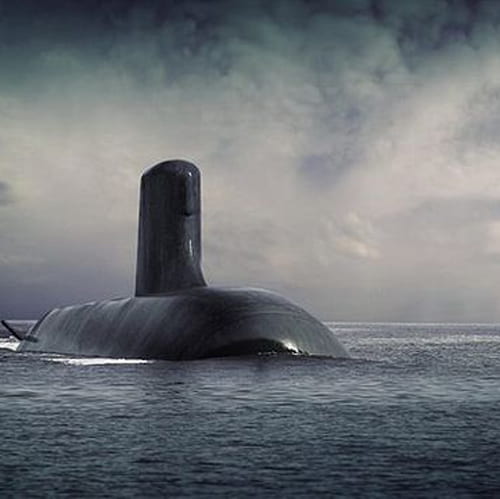By Joe Barnes
Bonner Means Baker Fellow
On September 15, the United States, the United Kingdom, and Australia announced the formation of a new security pact called AUKUS. The group is committed to closer trilateral cooperation across a realm of issues, including cyber capabilities, artificial intelligence and bolstering Australia’s long-range military strike capability. But it was another part of the deal — the announcement that Australia would be dropping its acquisition of conventional French submarines in favor of purchasing U.S. nuclear ones —that caused an immediate uproar.
The response from Paris was … extravagant. The French foreign minister declared Australia’s move to shelve it purchase of French submarines “a stab in the back.” Rhetoric elsewhere in the French foreign policy community was similarly outraged. President Emmanuel Macron took the extraordinary step of recalling French ambassadors to Washington, D.C., and Canberra. This was the first time France had recalled its ambassador to the U.S. since the Citizen Genet Affair of 1794.
French pique is not entirely unwarranted. AUKUS was announced without any warning, much less consultation with Paris. (There are surely concerns in France about the failure of its intelligence agencies to pick up these negotiations.) For NATO allies like the United States and United Kingdom to conceal negotiations of this import from another NATO member may not be a stab in the back. But it certainly constitutes a slap in the face — and a humiliatingly public one at that.
Paris and Washington have passed the immediate crisis. France’s ambassador has returned to the United States. Biden and Macron have spoken. A predictably bland communique was issued after the conversation. It did include this language, however, which amounted to an apology of sorts by Biden: “… the situation would have benefited from open consultations among allies on matters of strategic interest to France and our European partners.” (It is ironic that Biden, who criticized former President Trump’s cavalier handling of allies, managed to prompt an unprecedented rift with a NATO partner.)
Some of France’s anger was surely related to the loss of a lucrative submarine contract running into the tens of billions of dollars. Military sales are an important part of France’s exports. The country is one of the world’s largest arms exporters, though its global sales are dwarfed by those of the United States. Moreover, like Washington, Paris uses its military sales as an instrument of foreign policy, wielding influence through other countries’ dependence on French weapons systems.
But French concerns transcend the arms’ sales. It touches upon the idea of European strategic autonomy — very roughly, that the EU needs more independence in its foreign policy. As a practical matter, that means less dependence on the United States, though autonomy’s supporters are usually quick to claim that the EU would still remain an ally of the United States. Macron is a strong supporter of more European strategic autonomy (presumably guided in large part by France), though similar sentiment exists elsewhere in the EU. The whole question of strategic autonomy is an old one. And it has long been hampered both by the EU’s modest military power projection capability and cumbersome decision-making. But the issue has gained salience, particularly as the U.S. and the EU address Chinese threats in the Pacific.
Countering that threat was clearly the driving force behind the Biden administration’s decision to negotiate AUKUS. Under President Trump, U.S.-China relations took a distinct turn for the worse, particularly for trade. But relations have arguably become even more strained under Biden, who made taking a forceful line against Beijing part of his campaign. The specific issues at dispute between the United States and China are varied. They include Chinese naval moves in the South China Sea, an increasingly aggressive stance against Taiwan, human rights abuses and rising Chinese competition in the high-tech sector. The Biden administration calls its approach to China “strategic competition.” Stripped of jargon, this approach entails a broad array of measures designed to retain the global preeminence of the United States and its allies. AUKUS is merely one among many measures to create stronger institutionalized and ad hoc anti-Chinese alliances. (The more informal “Quad” among the United States, Japan, Australia and India is another.) By cutting Paris out of the deal, Washington sent a clear message: while the United States appreciates European help in the Indo-Pacific, it should be deferential to U.S. leadership.
Australia’s decision-making is also clear. Faced with rising tensions between Beijing and Canberra, Australia opted to strengthen its traditional ties with the country boasting the largest and most sophisticated navy in the world.
The contretemps over AUKUS occurs at the intersection of two huge geopolitical questions. The first is related to the ongoing U.S. efforts to develop a strategy to contain China militarily in the Pacific. The second is the old, but intensifying, debate over the EU’s role in great power politics. Neither issue is going to go away soon. And both will be high on Biden’s foreign policy agenda for the balance of his administration.
